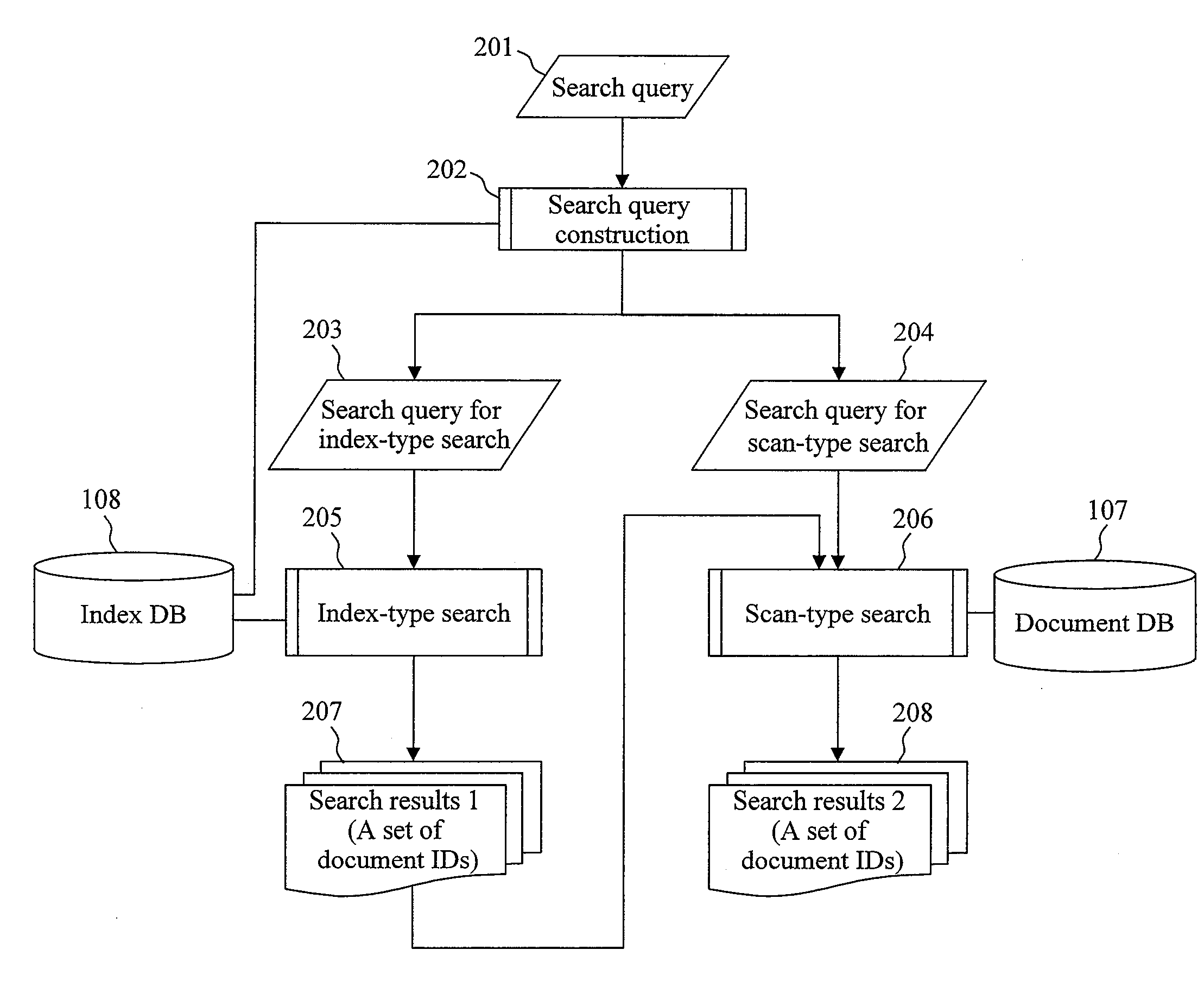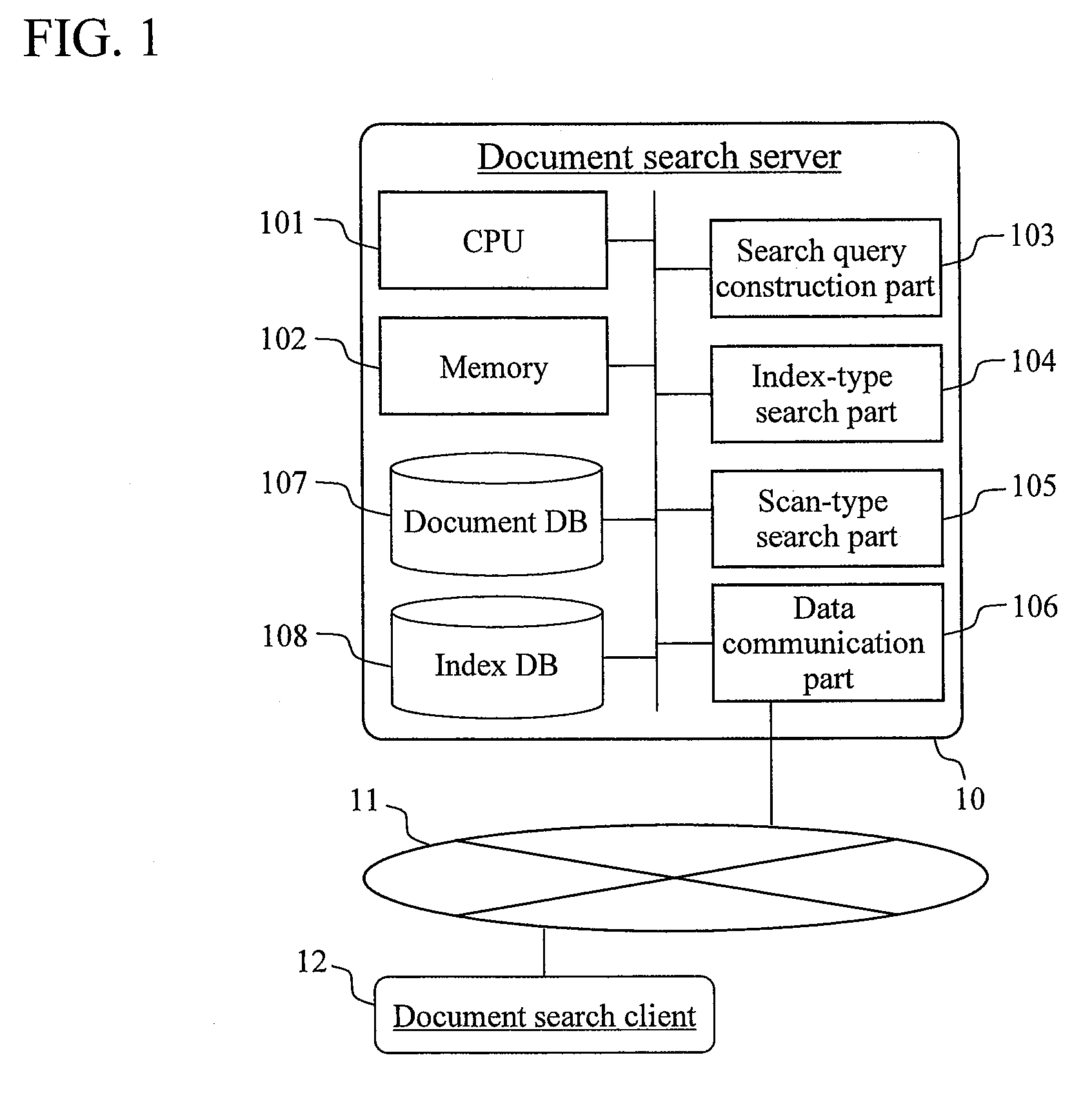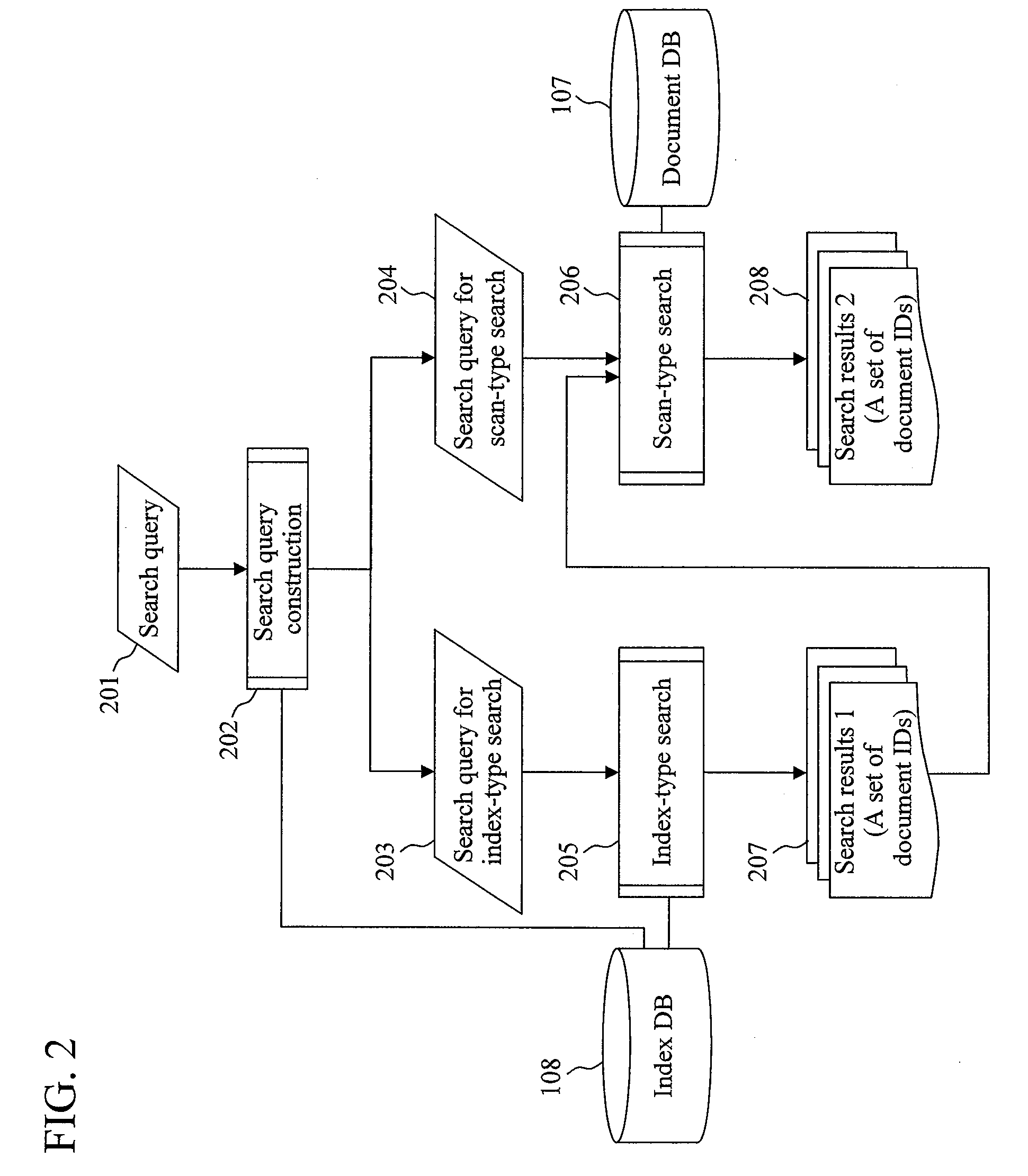Document search method
a document search and document technology, applied in the field of document search technique, can solve the problems of slow index-type search, not producing any advantageous effect, and the average speed of index-type search may not be obviously decreased, so as to improve index-type search and hybrid-type search speed, speed up scan-type search speed, and increase the effect of skip-reading
- Summary
- Abstract
- Description
- Claims
- Application Information
AI Technical Summary
Benefits of technology
Problems solved by technology
Method used
Image
Examples
embodiment 1
[0025]FIG. 1 is a diagram showing a system configuration example of a document search apparatus of the present invention. The document search apparatus comprises a document search server 10, a network 11, and a document search client 12.
[0026]The document search server 10 comprises a CPU 101, a memory 102, a document DB 107, and an index DB 108. In addition, the document search server 10 includes programs configuring to a search query construction part 103, an index-type search part 104, and a scan-type search part 105, as well as a data communication part 106.
[0027]The CPU 101 performs various processings by running various kinds of programs configuring to the search query construction part 103, the index-type search part 104, and the scan-type search part 105. The memory 102 temporarily stores the programs run by the CPU 101 and the data required to run the programs.
[0028]The data communication part 106 is an interface to carry out data communication via the network 11, and is con...
embodiment 2
[0058]In Embodiment 1, in identifying the search term WB1 for performing index-type search, the number of hits for all the search term is once checked and a search term having a larger number of hits than the other search terms is regarded as hitting all documents. Then the estimated value DN of the number of documents for scan-type search in this case is calculated (S705). However, when the search query becomes long, it is less preferable in terms of computation time, to calculate DN as many times as the number of search terms. In this embodiment, a method of determining the search term WB1 is employed that does not require much computation time. Embodiment 2 is the same as Embodiment 1 other than the point above.
[0059]FIG. 8 is an identification processing procedure of a character 2-gram for the index-type search, in this embodiment. This corresponds to the procedure of FIG. 7 in Embodiment 1.
[0060]Firstly, the initial setting is performed in S801. The processing point which is di...
embodiment 3
[0065]In the Embodiment 1 and Embodiment 2, the original search query is used without any modification as the search query of scan-type search. It is said that the search speed for the scan-type search is fixed no matter what search query is used. However, as already explained, for the CW method that performs skip reading, the search speed depends largely on the length of the shortest keyword. When there is even one short keyword in a search query, the numbers of characters to be skipped during scanning are decreased and the search time would increase accordingly with the influence of this keyword.
[0066]In this embodiment, a method is described, in which such a disadvantage of the scan-type search is compensated by interoperating the index-type search and the scan-type search more closely. In the index-type search, when a character 2-gram is used as the term to be registered in the index, performing only the index-type search with a one-character or two-character keyword can return ...
PUM
 Login to View More
Login to View More Abstract
Description
Claims
Application Information
 Login to View More
Login to View More - R&D
- Intellectual Property
- Life Sciences
- Materials
- Tech Scout
- Unparalleled Data Quality
- Higher Quality Content
- 60% Fewer Hallucinations
Browse by: Latest US Patents, China's latest patents, Technical Efficacy Thesaurus, Application Domain, Technology Topic, Popular Technical Reports.
© 2025 PatSnap. All rights reserved.Legal|Privacy policy|Modern Slavery Act Transparency Statement|Sitemap|About US| Contact US: help@patsnap.com



